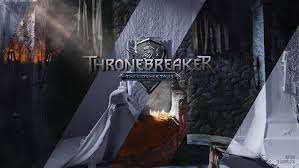
The Witcher Tales
Moreover, The Witcher Tales does not shy away from exploring the darker sides of its characters and their motivations. While the main series focuses on Geralt’s journey, the tales dive into the lives of lesser-known figures, showcasing their struggles, triumphs, and failures. This expansion of perspective enriches the overall narrative, enabling players to experience a more nuanced view of morality and consequence within the Witcher universe fun88.
Exploring the Dark and The Witcher Tales
The heart of The Witcher Tales lies in its dark and twisted narratives, where players confront morally ambiguous choices that permeate the stories. Through these tales, players are introduced to unsung heroes and villains, offering a fresh perspective on the age-old battle between good and evil.
The unsung heroes and villains of The Witcher Tales
In many classic stories, heroes tend to dominate the narrative, while villains serve as mere obstacles to be overcome. However, The Witcher Tales takes a different approach. Here, players encounter protagonists who may not fit the mold of traditional heroism, each grappling with their demons, making mistakes, or choosing paths that blur the line between hero and villain.
For example, one of the tales might center on a character who was once a celebrated knight but fell from grace due to a tragic betrayal. As players guide them through their quest for redemption, they navigate moral ambiguity, reflecting on themes such as guilt, penance, and the quest for forgiveness. These characters become relatable, flawed individuals rather than archetypes, inviting players to invest emotionally in their journeys.
Conversely, even the “villains” presented in these tales may reveal complex backgrounds. Uncovering their motives often leads to surprising revelations regarding their actions. Perhaps a tormentor’s harsh methods stem from a desperate desire to protect their loved ones. By humanizing these antagonists, The Witcher Tales invites players to reconsider their perceptions of right and wrong, creating a multifaceted narrative landscape.
Morality and choices—how they shape the narrative
At the core of every tale in The Witcher Tales lies a profound exploration of morality. Decisions made by players should not only reflect their personal values but also consider the consequences those decisions have on the world around them. The game encourages critical thinking, prompting players to pause and reflect before making choices that may seem easy but hold far-reaching implications.
Choices impact not only immediate interactions but can ripple through the entire narrative arc. For instance, a seemingly innocuous choice early in the tale may lead to catastrophic fallout later on, affecting relationships between characters or altering the entire course of the plot. This interconnectedness emphasizes the weight of every decision and aligns perfectly with the essence of the Witcher universe—where choices matter, and every action carries a price.
Additionally, players may find themselves wrestling with ethical dilemmas that force them to confront their beliefs about justice, retribution, and mercy. The resulting narratives often challenge players’ preconceived notions of righteousness, leaving them with lingering questions long after they’ve finished the game.
Dark secrets and hidden lore within the game
While much of the storytelling relies on character-driven narratives, The Witcher Tales delves deep into the hidden lore of the Witcher universe. Each tale is interwoven with dark secrets that players can uncover through exploration and keen observation.
These secrets often relate to historical events or locations within the Witcher world. For example, a specific tale might hint at ancient prophecies, lost civilizations, or forgotten magical practices that were once considered taboo. By piecing together these fragments of lore, players gain a richer understanding of the world’s history, further immersing them in the complexities of the narrative.



